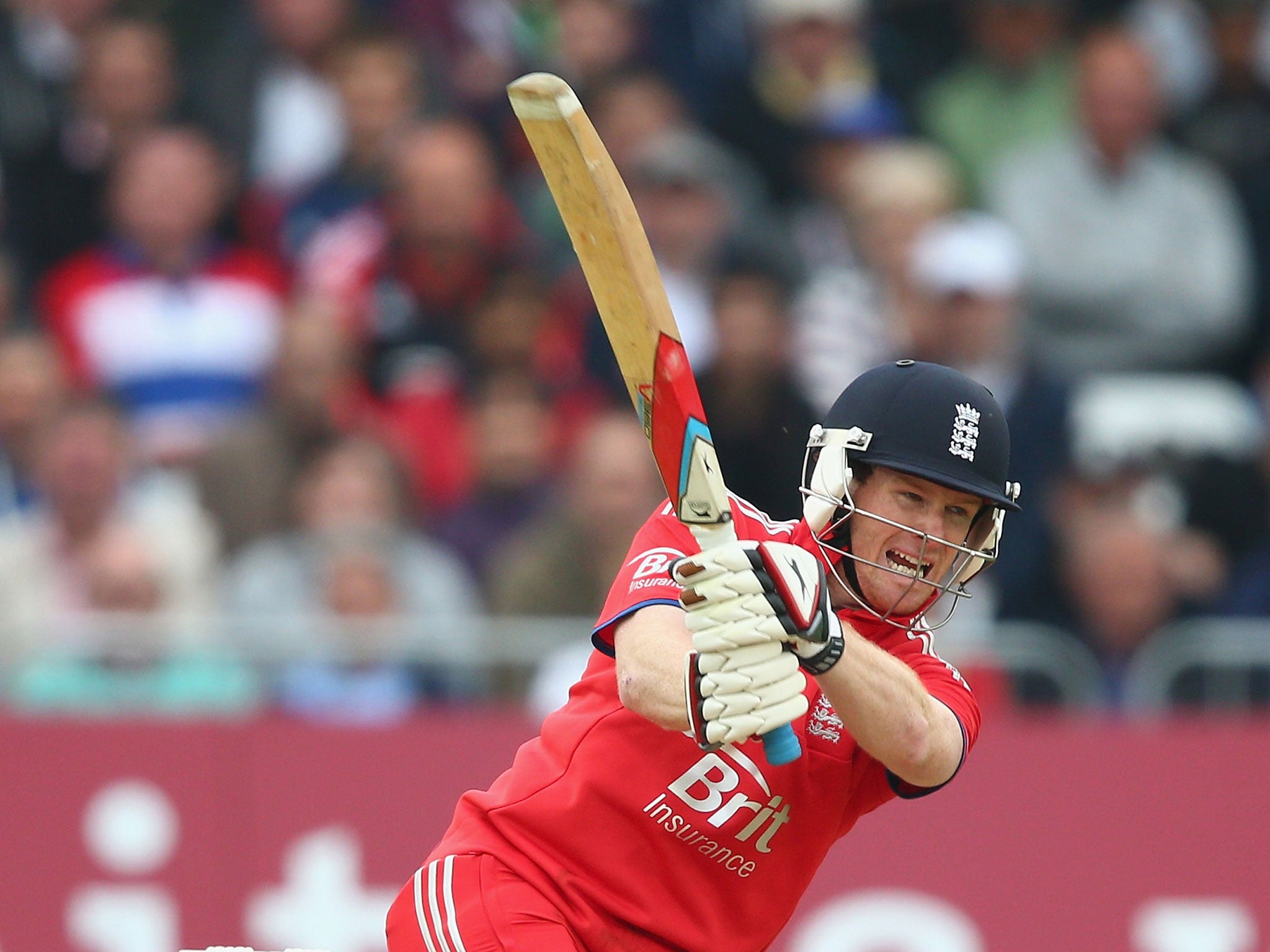Joe Callaghan: Eoin Morgan should have known better than to lead England
View From Ireland: The incendiary rivalry still captures the imagination while excesses of money and cheating turn off so many

There are fitting backdrops and there are fitting backdrops. And then there is Malahide Castle. Perched on the north Dublin coastline, it's a towering testament to the construction skills of the invaders from across the sea.
It's steeped in as much history as any self-respecting castle but, because it's the weekend and no one came for a lecture, here's an abridged version. It was built in the 1100s by the Talbot family, who were granted the estate by the good Henry II, fresh from plundering Ireland in the Norman invasion.
To be fair to them, the Talbots made the most of the place for a solid 800-odd years (who wouldn't?) before handing it over to the Irish government in the 1970s, perhaps with a little scrawled note that they were "sorry for the pillaging stuff that got us the old pile". Or perhaps they didn't feel the need because, hey, time's a healer.
And it has healed all wounds. The "no hard feelings" approach has been good for Anglo-Irish relations. But it stops short at sporting arenas. Much like the castle looms over England's historic one-day international at the revamped home of Irish cricket on Tuesday, history still hangs heavy over sporting encounters between these oldest of enemies.
And that's a good thing. The incendiary rivalry still captures the imagination at a time when the excesses of money and cheating dripping from the pores of modern sport turn off so many.
And it's exactly why Eoin Morgan is doing something very, very wrong when he captains England in Dublin next week.
Tuesday is the day when Irish cricket puffs out its chest, showing the world just how far it has come, as 10,000 patrons pack out Malahide on the day it is confirmed as its permanent home.
It has been a truly remarkable decade for the sport here but so many of the highs came abroad. At home, the team lived a nomadic existence, switching from makeshift set-ups in nearby Clontarf and Belfast's Stormont.
But Phil Simmons' men now have somewhere to call their own. And it's a damned impressive sight. Truly somewhere to be proud of. So it's a historic day for the sport in Ireland and is supposed to be an occasion that ignites the touchpaper.
But Morgan leading out the visitors with three lions across his own chest puts out the match before it is properly lit. Instead it's a sign of the struggle that cricket has here. How is it ever to appeal to the masses when the best Irish player in the game is captaining England?
So much of Irish sporting culture comes from our native games. Gaelic football and hurling couldn't be more dictated by boundaries. County against county, town against town, parish against parish. Tribalism finds its true home here.
And it makes for truly special days. That ethos is applied by the Irish sports lover to every other code. And there isn't a sport in the world where Ireland's biggest rivals aren't their closest neighbours. None.
England stirs the blood like no other. And I can't think of another sport in the world where an Irishman would willingly captain England against his native land.
Morgan has done it before, of course, in Clontarf two years ago. But this time is different. So different. This is Irish cricket's day. And he's spoiling it.
The argument here is not that he shouldn't be playing for England. Morgan's dream as a child was to do just that. "From the age of 13, I wanted to play cricket for England," he has said, "I've never felt any shame in saying that."
Fair enough (although such an offering to my own father in my early teens would probably have seen me go without supper for a fortnight or so).
Having been central to some of Ireland's breakout days in the 2007 World Cup, Morgan turned his back on his country in pursuit of Test cricket and being the best professional player he could be. Ironically, though, it is in one-day and Twenty20 formats that he has found his niche, putting both before a stuttering Test career.
Kevin O'Brien's barnstorming exploits in both the shorter forms of the game, meanwhile, have proved to this observer that Morgan could have had just as successful a career without having to apply for a British passport.
The ECB has had more pressing matters this week trying to dampen down (probably not a great choice of phrase) the Ashes celebrations fiasco. So it can be forgiven for the insensitive idea of asking Morgan to be captain in the first place.
But he should have known better. Morgan's a son of north Dublin. Returning as an officer-class English cricketer sends out all the wrong messages.
It was O'Brien who was the poster boy for the seminal day in Irish cricket. The World Cup triumph over England in Bangalore two years ago had them roaring in Cork and Galway and Limerick, the country's non-cricketing corners. It was that day that had Dublin taxi drivers talking about boundaries and run rates and fours and sixes.
It mattered so much more than any other. Why? Because it was England. It always matters more.
Eoin Morgan doesn't need to glance up at the turrets of Malahide Castle on Tuesday to know that. Although maybe he should.
Joe Callaghan is Sports Editor of the 'Irish Daily Mail' twitter.com/@JoeCallaghan84
Subscribe to Independent Premium to bookmark this article
Want to bookmark your favourite articles and stories to read or reference later? Start your Independent Premium subscription today.

Join our commenting forum
Join thought-provoking conversations, follow other Independent readers and see their replies